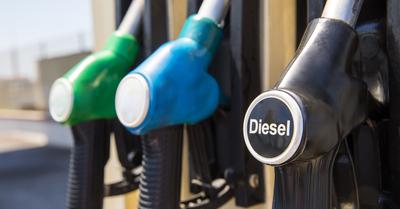In our daily lives, we often come across various types of engines, but have you ever wondered how long a diesel engine can last?
A diesel engine will last for 500,000 to 1,000,000 miles. Diesel engines last longer because they compress air at twice the rate of gas engines, so it’s easier to regulate temperature. Diesel is also more refined, creating a lighter oil for better fuel quality and lubrication.
With proper maintenance, you might be surprised to learn how long the average diesel engine can last. So, join us as we dive into the world of diesel engines and discover what makes them stand out regarding reliability and endurance. You may find that diesel engines are a powerful, efficient, and smart choice for specific applications and industries.
Key Takeaways
- A diesel engine will last between 500,000 to 1,000,000 miles depending on maintenance.
- Diesel engines last longer because they have twice the compression ratio, they monitor temperature better, and diesel fuel is more refined for better lubrication.
- Diesel fuel also has a higher energy density than regular gasoline.
This article may contain affiliate links where we earn a commission from qualifying purchases.
How Long Does A Diesel Engine Last? An Easy Guide for Vehicle Owners
Diesel engines can last anywhere from 500,000 to 1,000,000 miles before needing major repair work. Comparatively, gas engines usually max out at around 200,000 miles.
Air Compression Ratio
One reason for this significant difference is the design of both engine types. Diesel engines compress air at about twice the rate of gasoline engines. The compression ratio ranges between 14:1 to 25:1.
Oil & Temperature
Consequently, their parts, such as the engine block, cylinder heads, and pistons, are engineered to be more durable and withstand higher pressures. Diesel is a light oil, so when it burns, it’s less harsh on the internal combustion engine. They also do a better job of regulating oil and fuel temperatures.
Fuel Quality
In addition to the robust design, the fuel contributes to the longevity of diesel engines. Diesel fuel has better lubricating properties than gasoline, reducing friction and wear on the engine parts.
Diesel engines also tend to operate at lower RPMs than their gasoline counterparts. Lower RPMs result in less wear and tear on the engine components, contributing to the extended lifespan.
Do Diesel Engines Last Longer Than Gas Engines?
Yes, diesel engines generally last longer than gasoline engines. This increased longevity is due to several factors, such as the overall design of diesel engines, the fuel they use, and the applications in which they are widely used.
One reason we can attribute this to is that diesel trucks are built with strength and durability in mind. They are designed for heavy-duty use and can handle much more wear and tear than their gasoline counterparts. This added toughness aids in extending their life expectancy.
Another factor is the fuel itself. Diesel fuel has a higher energy density than gasoline, so diesel engines work more efficiently. Consequently, they operate at fewer revolutions per minute, putting less strain on engine components and further contributing to their extended lifespans.
In terms of real-world numbers, a well-maintained diesel engine can be on the road for 30 years or more. We should note that maintenance plays a significant role in the life of any engine.
Diesel Fuel Vs. Gasoline Engine
Diesel engines are robustly built to handle the rigors of high compression, and they're known for their longevity. As mentioned previously, a well-maintained diesel engine can clock between 500,000 to 1,000,000 miles before needing a significant overhaul.
In modern diesel engines, the air is compressed much higher than in a gasoline engine. This requires engine parts and valves to be more rugged to handle the higher compression.
While a modern gas engine can be highly reliable, they typically have a shorter lifespan than their diesel counterparts. A well-maintained gasoline engine can last for around 200,000 miles before it requires major servicing or replacement.
Diesel fuel contains more energy than gasoline, allowing diesel engines to generate more power with less fuel. This results in better fuel efficiency and reduces wear and tear on the engine components over time.
Why Do Diesel Engines Last So Long?
The overall design of a diesel engine is robust and gear-driven. This means that the engine components are made to withstand high levels of pressure and stress, which ultimately contributes to their prolonged lifespan.
The fuel that diesel engines use plays a vital role in their longevity. Diesel fuel is more energy-dense than gasoline, which allows the engine to generate more power while using less fuel. As a result, diesel engines don't have to work as hard and tend to last longer.
Lastly, the applications in which diesel engines are widely used often require them to be more durable and reliable. Diesel engines are popular in heavy machinery and commercial vehicles due to their fuel efficiency and power.
What Is Considered High Mileage For A Diesel Truck?
When looking at a diesel pickup truck, determining what is considered high mileage can help us make better decisions when purchasing used diesel vehicles.
For popular diesel engines, such as the Duramax, Cummins, and Powerstroke, the range between 350,000 to 500,000 miles is often seen as high mileage. Regular maintenance, such as oil changes and filter replacements, is essential in increasing the engine's longevity.
It's essential to note that an engine with high mileage is not necessarily a deal-breaker, especially if it has been well-maintained. Sometimes, we might find a truck that has surpassed the "high mileage" threshold but still runs efficiently due to its diligent upkeep.
High-mileage trucks can still provide years of reliable service as long as they have been properly cared for.
Maintenance Tips for Diesel Engines
A diesel engine uses compression ignition, creating spontaneous combustion. It’s well-known in the industry that this combustion type is beneficial to make the engine last longer. With that in mind, here are some maintenance tips to ensure a longer lifespan.
Regular Oil Changes
Oil changes are crucial to keeping your diesel engine in top shape. Over time, oil can accumulate contaminants that cause wear and tear on the engine's components.
Typically, you should change your engine oil every 3,000 to 5,000 miles, but always follow the manufacturer's guidelines.
Replace Filters Regularly
Most diesel engines have several filters, including air, oil, and fuel filters. These filters remove impurities that might harm your engine or reduce its performance.
Over time, these filters become clogged and should be replaced to prevent engine damage. The manufacturer's manual will provide a recommended schedule for filter replacement.
Regularly Inspect the Engine
Regular visual inspections can help spot potential issues before they become major problems. Look for signs of wear and tear, leaks, or other abnormalities. Pay particular attention to the belts and hoses, as these parts can deteriorate over time.
Limit Idle Time
As much as possible, limit your engine's idle time. While it's sometimes necessary, particularly in traffic or cold weather, unnecessary idling can lead to incomplete fuel combustion, soot buildup, and, eventually, engine damage.
Monitor Coolant Levels
The coolant in your diesel engine has an essential job of maintaining the optimum engine temperature. However, the coolant's additives can break down, leading to acidic coolant and damaging the engine.
Regularly check the coolant's pH level and replace it as needed to prevent engine damage. This can help prevent engine issues and overheating too.









